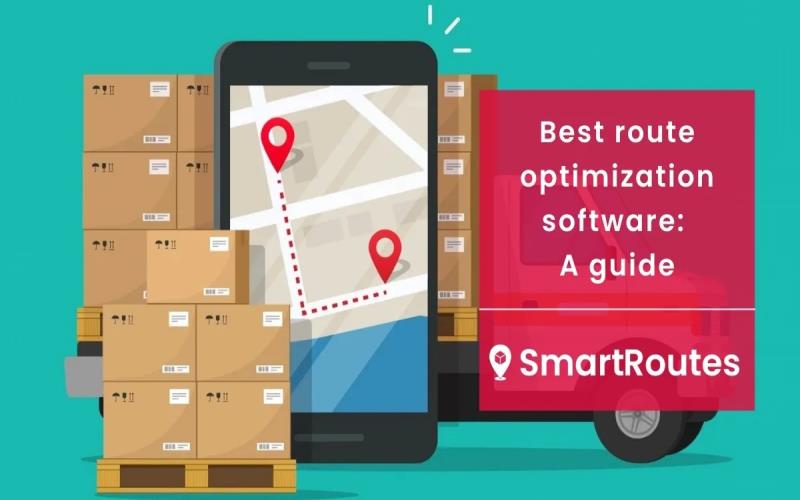Introduction to Route Optimization
Moving goods efficiently is a fundamental component of any modern business that relies upon a fleet of vehicles for delivery and services. Precise route optimization can be a game-changer by minimizing wasted mileage and hours on the road. By adopting sophisticated route optimization software, a business can manage its fleet more dynamically, adjusting to unpredictable elements like traffic jams, road closures, and last-minute schedule changes with ease and agility.
Implementing such software is not only about improving the turn-by-turn directions for your drivers. When deployed correctly, it is an overarching strategy that can lead to massive cost reductions, heightened customer satisfaction, and even a greener corporate footprint. Optimizing routes in an age driven by efficiency can yield benefits across the board and be the edge that sets a business apart in competitive markets.
The Role of Technology in Route Planning
Technical innovations have transformed the landscape of route planning. GPS systems provide real-time location data, while AI algorithms adaptively calculate the shortest and most time-effective routes. These technologies empower businesses to improve their delivery times and service quality measurably. It’s now possible to respond to variables that would have previously derailed a day’s work—like a sudden traffic accident or last-minute order—and recalculate routes within seconds to keep operations flowing smoothly.
Fueled by these advancements, a new era of route optimization offers a significant leap from earlier systems that were often no more than digitized versions of static maps. Now, businesses can truly harness the power of their data and the available technology to streamline their logistics like never before.
Overcoming Logistics Challenges with Route Optimization
Operating a delivery fleet is fraught with challenges. Margins can be thin, and customer expectations are high. Route optimization software provides sophisticated tools to address these challenges head-on. By optimizing every run, you can not only guarantee faster delivery times but also reduce the expenses associated with fuel consumption, vehicle wear and tear, and driver overtime. Perhaps more importantly, the flexibility provided by such systems allows for last-minute adjustments, further enhancing your ability to meet client demands.
Adopting route optimization strategies has been shown to have a significant positive impact on businesses. Decisions backed by data and efficient route planning can streamline any transport operation to perform more reliably, cost-effectively, and quickly. And as businesses grow or change, the scalability of routing software allows these solutions to adjust along with them, always providing an optimized framework for logistics and distribution.
The Environmental Impact of Route Optimization
Beyond the immediately appreciable business benefits such as time and cost savings, route optimization is critical in reducing environmental impact. Well-planned routes translate to less fuel consumption and reduced vehicular emissions, supporting global efforts to combat climate change. With environmental sustainability fast becoming a cornerstone of corporate responsibility, adopting strategies that curb your environmental impact is good ethics and business.
Several companies have leveraged route optimization to reduce their carbon footprints substantially, demonstrating this technology has the power to promote sustainability within the supply chain.
Route Optimization and Customer Satisfaction
The success of any service-based business hinges heavily on customer satisfaction, and this is particularly true for those operating a fleet. Improved routing capabilities mean goods get delivered faster, and services are rendered more promptly, leading to happier customers. In a market where consumers are increasingly accustomed to rapid turnaround times, a company’s ability to deliver on time can catalyze customer retention and growth.
Advanced routing systems also allow for better customer communication, offering them real-time updates on service or delivery statuses. By setting accurate expectations and consistently meeting them, businesses foster trust and engender brand loyalty, encouraging repeat business and positive word-of-mouth referrals.
Data Analytics and Route Optimization
Data analytics serves as the heartbeat of route optimization, propelling a cycle of continuous refinement. By analyzing the data from every route, businesses can identify trends, predict future challenges, and adjust their strategies accordingly. This process uncovers insights beyond the day-to-day, informing broader business decisions and spurring innovations in service and internal process improvements.
Route Optimization in E-Commerce
Nowhere is the pressure for rapid delivery more pronounced than in the e-commerce sector, where customer expectations for speed and reliability are at their peak. With the rise of online shopping, the need for effective route optimization becomes more pronounced. It’s a critical component in ensuring that businesses can keep up with the sheer volume and speed of demand that online retail generates. For e-commerce businesses, poor routing isn’t just inefficient—it can be a major detriment to customer satisfaction and overall profitability.
Future Trends in Route Optimization
A host of burgeoning technologies shapes the future of route optimization. From autonomous delivery vehicles to machine learning-enhanced routing algorithms, the promise of a seamless, integrated delivery and service continuum is well on the horizon. These developments speak to a future of increased efficiency and point to a more proactive and predictive approach to business logistics.
Implementing Route Optimization in Business Operations
The adoption of route optimization software is a strategic enterprise that requires thoughtful integration into existing business frameworks. The advantages can be profound when put into practice, but getting there necessitates attention to training, data quality, and change management. The ROI once these systems are in place can be tremendous, with benefits extending from the bottom line to customer happiness and environmental conservation.
Conclusion: The Ongoing Journey of Route Optimization
Modern route optimization is an endlessly evolving field, marrying logistics acumen with ever-advancing technology. As businesses strive to meet the demands of an instantaneous world, implementing optimal routing practices becomes essential. The benefits that accrue—increased efficiency, customer satisfaction, and sustainability—are tangible affirmations that adopting these intelligent systems is a strategic imperative for companies looking to stay competitive and responsive in a dynamic market.

